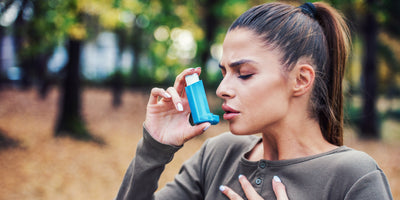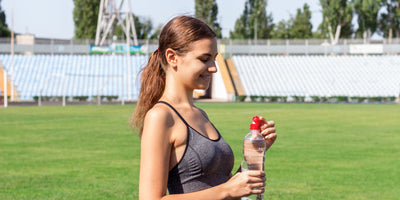
The Importance of Hydration for Seniors
Introduction
In the golden years of life, maintaining optimal health becomes a focal point for many, highlighting the significance of lifestyle choices that contribute to ageing with grace and vitality. Among these, hydration stands out as a fundamental yet often overlooked element. The importance of hydration for seniors cannot be understated, as it touches upon every aspect of physical well-being, from the integrity of vital organs to the functionality of the cognitive system. This comprehensive guide, "Age with Grace: The Importance of Hydration for Seniors," aims to shed light on the critical role water plays in the health and happiness of older adults. By exploring the unique challenges seniors face in staying adequately hydrated, understanding the potential risks of neglecting hydration, and adopting practical strategies to promote effective hydration habits, this article serves as an essential resource for seniors and their caregivers alike, striving to enhance the quality of life through informed health practices.
Understanding the Basics of Hydration and Ageing
Ageing brings about a myriad of physiological transformations that subtly alter the body's composition and its ability to function optimally. One of the most significant changes is the gradual decline in total body water. As individuals age, the proportion of their body weight that is water decreases from about 60% in adulthood to nearly 50% or less. This reduction is partly due to a loss of muscle mass (which holds a significant amount of water) and an increase in fat tissue (which contains less water). Additionally, ageing kidneys may not work as efficiently, affecting the body's ability to conserve or eliminate water. These factors, compounded by a decreased sensation of thirst that often accompanies older age, can lead to a precarious balance where the risk of dehydration increases substantially. It's crucial for seniors, and those who care for them, to understand these dynamics to preemptively address the hydration needs that are vital for sustaining health and preventing disease.
Furthermore, hydration in seniors is not just a matter of drinking water. It involves a complex interplay between diet, physical activity, environment, and chronic health conditions, which may all influence an individual's hydration status. Medications commonly prescribed to older adults, such as diuretics for high blood pressure, can also exacerbate fluid loss, making it even more critical to monitor and adjust fluid intake accordingly. Recognising the importance of hydration is the first step toward ensuring that seniors can lead a vibrant, healthy life, minimising the risks associated with dehydration and maximising their overall well-being.
Dehydration Risks in the Elderly

The risks associated with dehydration in older adults extend beyond mere discomfort; they can have profound implications for health and functionality. Dehydration can precipitate or exacerbate conditions such as renal dysfunction, electrolyte imbalances, and even cognitive impairments. The skin, the body's largest organ, also suffers, becoming more susceptible to breakdown and infection, a serious concern for bed-bound or less mobile seniors. Furthermore, dehydration can increase the viscosity of the blood, raising the risk of cardiovascular events, such as stroke or heart attack. The ripple effect of these potential health issues underscores the need for vigilance and proactive hydration strategies.
Studies have shown that even mild dehydration can impair physical performance, mood, memory, and motor coordination in older adults. This is particularly concerning given that cognitive decline and mood disorders are already challenges many seniors face. Dehydration's subtle onset, masked by the diminished thirst response inherent in ageing, necessitates a structured approach to fluid intake. Caregivers and seniors themselves must be educated about the signs of dehydration—such as fatigue, confusion, and constipation—and the critical importance of regular, adequate fluid consumption. The potential for dehydration to trigger urinary tract infections and kidney stones further exemplifies its impact on senior health, emphasising the necessity of keeping hydration at the forefront of care practices.
Recognising the Signs of Dehydration in Seniors
The ability to recognise the signs of dehydration in seniors is crucial for early intervention, yet these signs can be easily overlooked or attributed to other ageing-related health issues. Common symptoms such as dry mouth, lethargy, and reduced urine output are well-known, but in seniors, less obvious signs can also indicate dehydration. These include irritability, confusion, or sudden dizziness, which might mistakenly be dismissed as mere signs of old age. Additionally, skin elasticity decreases with dehydration; when pinched, the skin of a hydrated person will quickly return to its normal state, whereas dehydrated skin retains the pinched shape longer. Caregivers and family members should be aware of these signs and understand that thirst is not a reliable indicator in older adults, as the natural thirst response diminishes with age.
Moreover, chronic mild dehydration can have a cascading effect on the health of seniors, potentially leading to more severe complications such as kidney stones, constipation, and an increased risk of falls due to dizziness or confusion. Therefore, regular monitoring of fluid intake and the observance of daily habits can provide invaluable insights into a senior's hydration status. Encouraging regular sips of water, offering fluids in various forms (such as soups, fruits, and teas), and creating a comfortable environment where seniors can easily access beverages can significantly reduce the risk of dehydration.
The Role of Hydration in Managing Chronic Conditions
Hydration plays a pivotal role in managing chronic conditions that are prevalent among seniors, such as diabetes, hypertension, and heart disease. Adequate fluid intake is essential for diluting the blood, which can help to lower blood pressure and reduce the burden on the heart. For diabetics, proper hydration is crucial for facilitating kidney function and helping the body to process and excrete excess glucose through urine. Moreover, dehydration can lead to an increase in blood sugar levels, complicating glycemic control and potentially leading to hyperglycemic episodes.
Chronic kidney disease (CKD), another common condition among the elderly, also underscores the importance of hydration. Adequate water intake can support kidney function and potentially slow the progression of CKD by helping to flush toxins from the body and reduce the risk of kidney stones. However, it's essential for seniors with these conditions to consult healthcare professionals to tailor their hydration needs, as too much fluid can be just as harmful as too little in certain medical situations. The careful balance of fluid intake, aligned with medical advice and monitoring, can substantially enhance the quality of life for seniors managing chronic conditions.
Nutritional Aspects of Hydration
When considering hydration, it's important not to overlook the contribution of food to overall fluid intake. Many fruits and vegetables are high in water content and can provide a significant portion of daily hydration needs. For instance, watermelon, cucumbers, strawberries, and peaches are over 90% water and also offer vitamins, minerals, and fibre, contributing to overall health and well-being. Including a variety of these foods in the diet can aid in maintaining hydration and provide a pleasurable way to meet fluid needs, particularly for seniors who may find consuming large quantities of water challenging.
In addition to solid foods, soups and broths can be excellent sources of hydration. They have the added benefit of being comforting and easy to consume, making them particularly appealing for seniors with diminished appetites or difficulty chewing. Moreover, these options can be nutrient-dense, offering an array of vitamins and minerals alongside the hydration they provide. It's essential, however, to be mindful of the sodium content in commercially prepared soups, as excessive sodium intake can lead to health issues, including hypertension. Opting for low-sodium versions or homemade recipes where the salt content can be controlled is advisable.
Building on the foundational understanding of the importance of hydration in seniors, let's explore practical tips for enhancing hydration habits, overcoming common challenges to adequate fluid intake, and the significance of fostering a hydration-friendly culture in senior care environments.
Practical Tips for Enhancing Hydration Habits
Adopting effective hydration habits is essential for seniors to maintain optimum health. Here are practical strategies that seniors and caregivers can implement:
- Set Regular Reminders: Utilise timers or apps to remind seniors to drink water throughout the day. This can help overcome forgetfulness or lack of thirst.
- Keep Water Within Reach: Ensuring that a glass or bottle of water is always within easy reach encourages more frequent sipping, especially important for those with limited mobility.
- Enhance Flavor Naturally: Adding slices of fruits like lemon, lime, or cucumber to water can make it more appealing to seniors who find plain water uninteresting.
- Monitor Fluid Intake: Keeping a daily log of fluid intake can help seniors and caregivers track how much is being consumed and adjust as necessary to meet hydration goals.
- Encourage Consumption of Hydrating Foods: Integrating hydrating foods, such as soups, smoothies, and water-rich fruits and vegetables, into daily meals can significantly contribute to overall fluid intake.
Overcoming Challenges to Hydration in Seniors
Several barriers can hinder seniors' ability to stay adequately hydrated, from physical difficulties to health conditions that affect fluid balance. Addressing these challenges is critical for effective hydration management:
- Difficulty Swallowing (Dysphagia): For seniors with swallowing difficulties, thickened drinks or incorporating more gelatinous foods into the diet can help ensure safe and adequate hydration.
- Limited Mobility: Providing easy-to-hold cups or bottles and ensuring water is within easy reach can mitigate the effects of limited mobility on hydration.
- Cognitive Impairments: Seniors with cognitive impairments may forget to drink or not recognise signs of thirst. Structured routines, visual aids, and close monitoring can help maintain regular fluid intake.
- Medication Side Effects: Some medications may increase the risk of dehydration through increased urination or sweating. Regular consultations with healthcare providers can help manage these effects, adjusting medication or fluid intake as necessary.
Creating a Culture of Hydration in Senior Care Facilities
Senior care facilities play a pivotal role in promoting hydration among residents. Establishing a culture of hydration involves several strategic initiatives:
- Education and Training for Staff: Ensuring that all staff members are trained to recognise signs of dehydration and understand the importance of promoting regular fluid intake.
- Personalised Hydration Plans: Developing individual hydration plans based on each resident's specific needs, preferences, and health conditions can improve adherence to adequate fluid intake.
- Regular Monitoring and Support: Implementing regular check-ins to monitor hydration status and providing assistance or encouragement for fluid consumption can help prevent dehydration.
- Engaging Activities That Promote Hydration: Organising activities that include a hydration component, such as tea parties or fruit tasting sessions, can make hydration more engaging and enjoyable for residents.
Summary
- Physiological Changes with Age: Seniors experience a decrease in body water content and a diminished sense of thirst, increasing the risk of dehydration.
- Dehydration Risks: Dehydration in the elderly can lead to serious health complications, including renal dysfunction, electrolyte imbalances, and cognitive impairments.
- Signs of Dehydration: Important to recognise both common and less obvious signs of dehydration in seniors, such as confusion, dizziness, and decreased skin elasticity.
- Hydration and Chronic Conditions: Adequate hydration is crucial for managing chronic conditions prevalent among seniors, like diabetes, hypertension, and chronic kidney disease.
- Nutritional Aspects of Hydration: Foods high in water content, such as fruits and vegetables, contribute significantly to overall hydration and provide essential nutrients.
- Practical Hydration Tips: Strategies such as setting regular reminders, enhancing water flavor, and encouraging the consumption of hydrating foods can improve hydration habits.
- Overcoming Hydration Challenges: Addressing barriers like difficulty swallowing, limited mobility, and medication side effects is crucial for ensuring seniors stay hydrated.
- Culture of Hydration in Care Facilities: Senior care facilities should promote hydration through staff education, personalised hydration plans, and engaging activities that encourage fluid intake.









